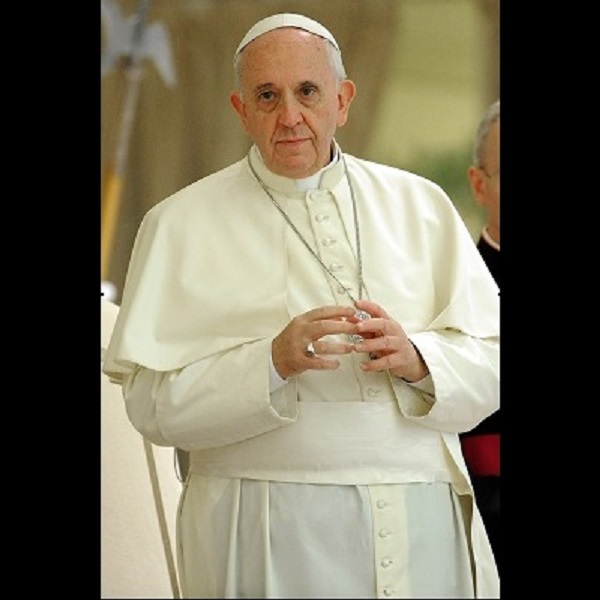Pope Francis on Friday warned against an "ideological colonisation of the family", a reference to gay marriage around the world and to a heated debate in the Philippines about a government population control plan.
Pope Francis on Friday warned against an "ideological colonisation of the family", a reference to gay marriage around the world and to a heated debate in the Philippines about a government population control plan.
The Pope made his impromptu comments at rally for families in Manila on a day that began with an appeal to the government to tackle corruption and hear the cries of the poor suffering from "scandalous social inequalities" in Asia's most Catholic country.
Addressing an evening rally of families, he spoke of an "ideological colonisation that we have to be careful about that is trying to destroy the family". He said it was coming from "outside" and had to be resisted.
While the Pope has said before that marriage must be between a man and a woman, his use of the phrase "ideological colonisation" appeared to be an appeal to developing countries not to follow the lead of nations where gay unions are already legal.
Speaking in Spanish through a translator, he also heaped praise on Pope Paul VI, who enshrined the Catholic Church's opposition to artificial birth control in the controversial 1968 encyclical Humanae Vitae (On Human Life). Francis said Paul "had the strength to defend openness to life" at a time when the Church was under pressure to change its position against contraception because of population growth.
The Philippines Church is opposed to a government decision to introduce a family planning law - allowing public health centres to hand out contraceptives, such as condoms and pills, and teach sex education in schools.
In a country where more than 80% of the 100 million population is Roman Catholic, the Church opposed the law, effectively blocking its passage for 13 years, for fear it would lead to a spike in abortions. The Philippines has one of the highest birth rates in Asia.
Appeal against corruption
On Friday morning, the Pope went to the Malacanang presidential palace for a welcoming ceremony led by President Benigno Aquino as tens of thousands of ecstatic Filipinos lined the streets.
Francis, a champion of the poor, pulled no punches in calling for a more just and caring society in the Philippines, which is about 80% Catholic. "It is now, more than ever, necessary that political leaders be outstanding for honesty, integrity and commitment to the common good," he said. Aquino took office in 2010 on the promise of transparency, good governance and battling corruption to lift the Philippines from poverty.
But he has struggled to shed the country's image as one of the most corrupt in Asia as he continues to defend his allies, while at the same time chasing down politicians, bureaucrats and generals associated with the past administration. The Pope urged government officials "to reject every form of corruption, which diverts resources from the poor, and to make concerted efforts to ensure the inclusion of every man and woman and child".
The Philippines has laid on the largest security operation in its history, with about 50,000 police and soldiers on hand. Francis' car was flanked by police vehicles, which sometimes made it difficult for people to see him.


No comments :
Post a Comment